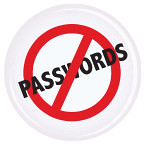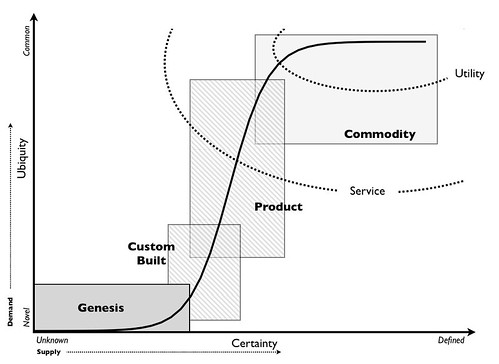I have been discussing on the importance of "Digital Agency" and the need for a "Digital Magna Carta", but the phrase I was looking for just jumped out at me from this article.
The phrase is Digital Feudalism, we seem to be happily sleep walking into a new form of feudal society where the digital behemoths, and a few very agile and forward thinking startups, are happily hoovering up every ounce of digital agency they can. Sadly, they are not just hoovering up the digital bytes that allow us to maintain control of our own environments, they are also capturing as much data as they possibly can, in order to enable them to, know our every whim and desire, and predict our future desires before we ourselves know them. It is this rather spooky activity that has caused those who regulate our societies to focus on Privacy as the key aspect to legislate, rather than the broader and more important aspect of maintaining control of our digital selves, and our environment. This aspect I have labelled Digital Agency. Sociologists and Philosophers are very comfortable that the word agency pertains to the degree of control an entity is able to exert on their environment. In normal usage we are comfortable with the use of the word when it relates to passing our agency to a third party or agent. In fact so comfortable that we are transferring our control ever more completely to the new power brokers, the Digital Feudalists, or Uber Class.
The term "Uber for X", where X is the new industry being targeted by the Digital Feudalists, is starting to create fear in the traditional organisations, used to providing goods and services in the current economic model. Will they be next to be taken out? We should expect them to try and turn us into their digital serfs as rapidly as they know how.
What then, is Digital Feudalism and what are the underlying bets? Digital Feudalism is the act of making Serfs out of both the provider and the consumer. There are two types of serfs in this new model. Firstly the physical serf, the indentured front line provider of the service in question, they are basically providing the labour capital at the lowest possible cost to provide the physical aspects of the digitised service in question (NB Where possible the new Feudal Lords aim to eliminate the need to use human labour in the provision of their services.) The second serf type, is the entity we used to call Customer, they are the indentured digital consumers of the relevant service. In both cases these serfs are bound by an indented** contract to their digital feudal Lord, whether Uber, Google , or O2, (one of the earliest of the new Digital Feudalists in their initial BT Cellnet guise.)
**The indents in the two physical copies of a contract were used to identify the documents as the same contract. Hence the word indentured. Trust and Identity are at the root of so many of our legal and social systems.
Regulators existed in the communications space, who understood the importance of the freedom of choice and ability to move from provider to provider, thus number mobility and the ability to change providers were swiftly regulated. However, the control over the data created by mobile communication devices has not yet been put back into the hands of the rightful owners of that data, as Telefonica the owners of O2 have demonstrated with the creation of Telefónica Dynamic Insights. For that matter nor has the control over the mobile communications devices themselves been put into the hands of the owners of those devices. This is related topic, which describes the importance of our having agency over our Things.
On then to the underlying bets, the key bet of the Digital Feudalists is that there will always be enough digital serfs with the economic capacity to purchase their services, another bet is that there will always be enough physical serfs willing to provide the few remaining required physical activities at below market rates.
An underlying bet is that the human resources making up both types of serfs will be happy to treated as fungible assets. Willing to be treated like cattle or perhaps worse the beets fed to the cattle.
Finally, they are betting on gaining access to our collective digital assets at no charge, at least not from the rightful owners of those digital assets.
It is not clear that our regulators are up to the task of ensuring that Digital Agency rests in the hands of the related entities, whether individuals or organisations. At present they seem to be focussing on prescribing opaque windows in the bathrooms of houses built on the edge of a Volcano. We are in the process of losing control of our individual environments, let alone the data we create in them, and perhaps worse the means of creating wealth from our skills and digital assets. Hence the importance of creating a Digital Magna Carta, that defines and prescribes the key Digital Rights that any entity should hold dear. Such a document would be a useful signpost to enable us, and those that govern us to navigate the next decade, as humanity struggles to address the major social upheavals involved in changing from one economic model to another.
One question that occurs to me is that when all the population of the planet are digital serfs, and that the last vestiges of labour have been expunged by automation from the production process, what then? The film Zardoz springs to mind!
A disquieting thought from the article I referred to at the start of this blog, that you may or may not have read, is that the growth in inequality is higher in San Francisco than it is in Mumbai.
On the up side, the most positive thought was also found in the article:
"Whatever the outcome, the younger generations show a tendency toward being empowered citizens valuing co-creation and sharing rather than becoming consumers."
So what should we be doing about Digital Feudalism, this question is as relevant to business owners, and those that govern us, as it is to ourselves as individuals. Or will we just sit back and let the Millenials deal with it?
Methinks that it is not a good idea for us, the ever aging part of the population, to leave them, the Millenials, with the impression that we thought it was a good idea for them to be treated as fungible assets. They may just jump to the conclusion that the concept should naturally apply even more strongly to the old and decrepit part of the human labour pool!?
Perhaps we need more than a Digital Magna Carta...
"We the People, of the planet Earth, on order to form a more perfect global community...
Now I know I'm dreaming!! ;-)

